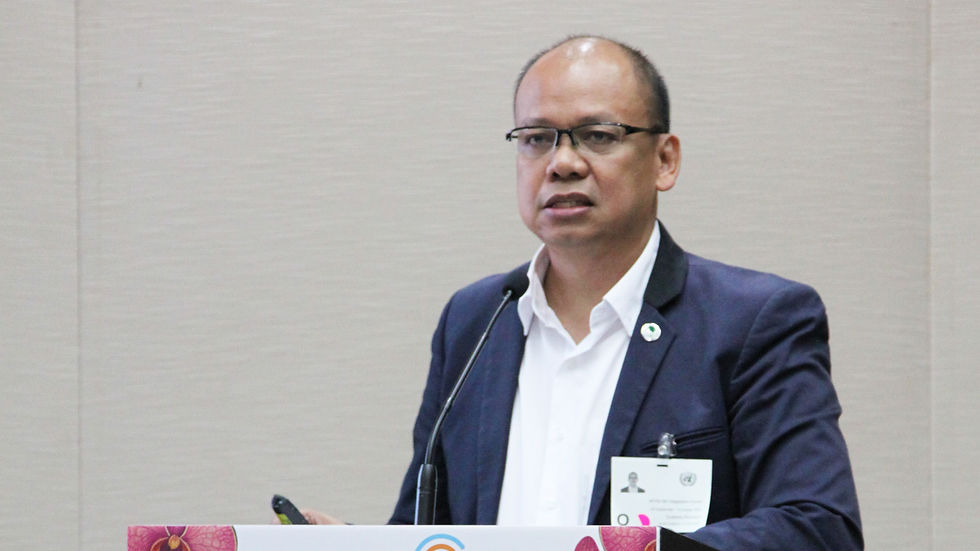Panelists discuss the urgency to address water security issues and water-induced disasters
- Mar 11, 2021
- 2 min read
Updated: Feb 12, 2025
AIT RRC.AP participated in the Water Security and Climate Change Conference (WSCC) held virtually from 1 to 4 March 2021. The conference provided a space for scientists, policymakers, and stakeholders from diverse sectors to share their knowledge and experience on water security issues with relation to climate variability and change.

AIT RRC.AP organised a session on “Adapting to Climate Change: Strengthening Urban Water Resilience” on 2 March 2021. The session was moderated by Mr. Phurba Lhendup of AIT RRC.AP, and started with a keynote address by Dr. Naoya Tsukamoto, director of AIT RRC.AP, who emphasized the serious risk posed by climate change and rapid ubanisation on the availability of water resources and services especially to vulnerable and marginalised groups in urban areas. He further highlighted that due to rapid population growth and climate change, increasing demand for water, food, and energy deems current practices insufficient to address water-induced disasters, provide water security, and ensure resilience for urban dwellers. He pointed out an urgent agenda item for countries, communities, and individuals is to step up investments and apply a multi-stakeholder approach to improve urban water resilience.

Following the keynote speech Mr. Armen Rostomyan of AIT RRC.AP presented some of the challenges in building urban water resilience in Asia, and highlighting that the role of government is key to climate change adaptation, integrated disaster risk management, and water management.
To discuss on the development of early warning systems, their accuracy, and the need to improve urban resilience to floods, Ms. Kyaw Kay Khaing of the Hydro-Informatics Institute, Thailand, introduced their web-based interface for an urban flood warning system applied to the Bangkok area.
Lastly, Ms. Nazwa Tahsin of the Bangladesh University of Engineering and Technology, shared her insights from her research study on understanding water insecurity dynamics in slums of Dhaka, and emphasised the need to generate evidence-based contextual solutions to eradicate water insecurity including increased community participation and empowerment in policy and technology.


